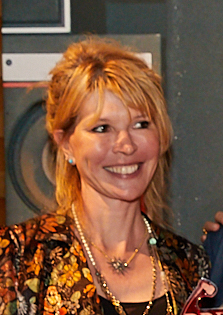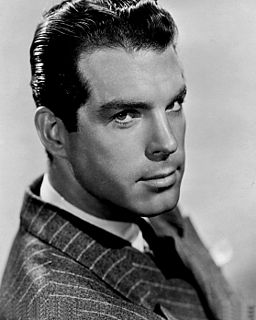A Quote by Linda Cardellini
I think some of the most important things we read about other people occurs from being able to read their faces and their eyes and their body and those kinds of things.
Related Quotes
You're writing for some version of yourself. You're writing the kinds of things that you like to read or wanted to read at a certain point. So, primarily for most of my career, I've written the kind of criticism that fascinates me. The things I discovered the things that get me going, that I'm excited about.
One of the things I do take some pride in is that if you had never read an article about my life, if you knew nothing about me, except that my books were being set in front of you to read, and if you were to read those books in sequence, I don't think you would say to yourself, 'Oh my God, something terrible happened to this writer in 1989.'
As far as people communicating with each other well I think that listening is important. You know really trying to read between the lines of what some body is saying and trying to read their mind a little bit where there at because most people don't really say what they're feeling. Which is the bones of great literature.
I think that when you're depressed, you can't concentrate long enough and well enough to read for the most part; some people can, but by and large people - that's one of the first things that goes, is the capacity to read meaningful literature. With grief, that's not true. For a while you can't read, but then you really are amenable to solace.
I don't think anything ever "needs" to happen. I don't think it's more positive to have a Twitter account, a Tumblr, and a blog. Someone without those things will use their time to do other things, like read books or swim or talk to their children or read websites or listen to music or write books or lie in bed or sit in a chair. I don't think any of these things are more positive than any other things.
I don't think it's more positive to have a Twitter account, a Tumblr, and a blog. Someone without those things will use their time to do other things, like read books or swim or talk to their children or read websites or listen to music or write books or lie in bed or sit in a chair. I don't think any of these things are more positive than any other things. I don't think having an internet presence helps financially.
Even if we're not doing anything wrong, there are certain things we want to do that we don't think can withstand the scrutinizing eye of other people. And those are often the most important things that we do. The things we do when other people are watching are things that are conformist, obedient, normal, and unnotable.
[D]on't ever apologize to an author for buying something in paperback, or taking it out from a library (that's what they're there for. Use your library). Don't apologize to this author for buying books second hand, or getting them from bookcrossing or borrowing a friend's copy. What's important to me is that people read the books and enjoy them, and that, at some point in there, the book was bought by someone. And that people who like things, tell other people. The most important thing is that people read.
The best advice I can give on this is, once it's done, to put it away until you can read it with new eyes. Finish the short story, print it out, then put it in a drawer and write other things. When you're ready, pick it up and read it, as if you've never read it before. If there are things you aren't satisfied with as a reader, go in and fix them as a writer: that's revision.
When you learn to read and write, it opens up opportunities for you to learn so many other things. When you learn to read, you can then read to learn. And it's the same thing with coding. If you learn to code, you can code to learn. Now some of the things you can learn are sort of obvious. You learn more about how computers work.


































